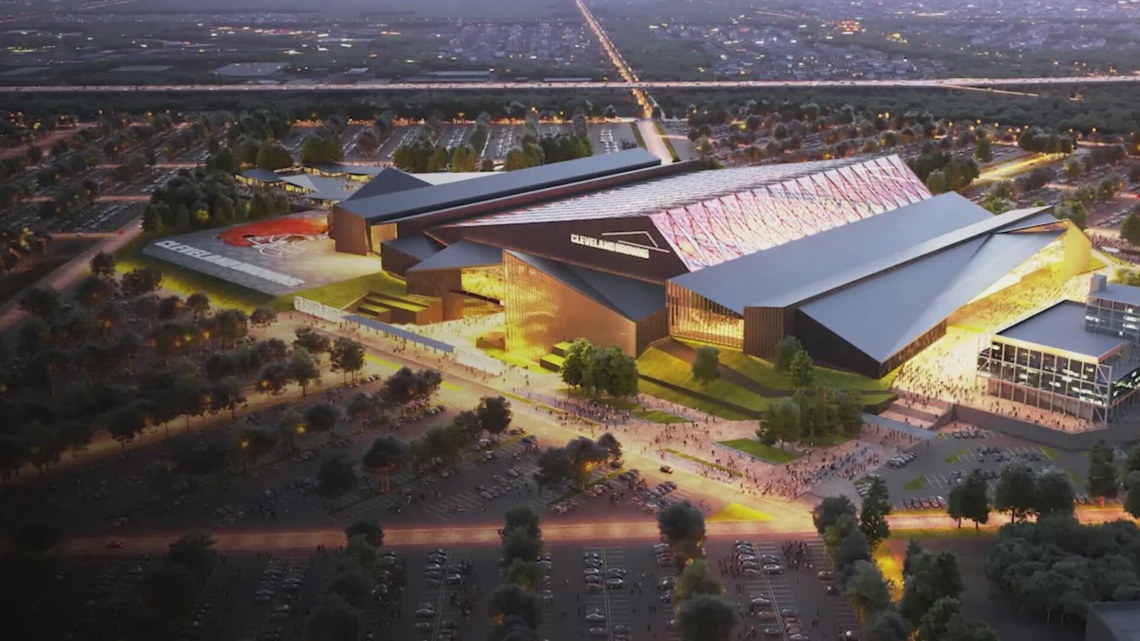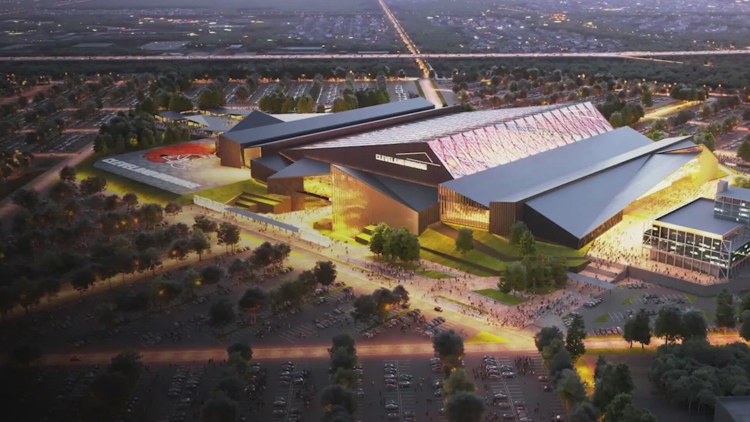

In an open letter, Mayor Edward A. Orcutt said the Haslam Sports Group has ‘been transparent, responsive, and collaborative throughout this process.’
BROOK PARK, Ohio — Brook Park Mayor Edward A. Orcutt is standing by the Browns’ financial plan to build a new domed stadium in his city, despite heavy criticism in recent days from both Cleveland and Cuyahoga County leaders.
In an open letter issued Thursday, Orcutt declared that he and his team “have done extensive due diligence on the proposal and the financials for the new Huntington Bank Field enclosed stadium.” He also claimed that the Haslam Sports Group, which owns the Browns, has put forth a plan that “is a fiscally sound, innovative approach that will work for the public.”
“The Haslams have been transparent, responsive, and collaborative throughout this process,” Orcutt wrote. “They genuinely believe that this big vision, in its own right, can be a game changer.”
For months, Jimmy and Dee Haslam have expressed their desire to move the Browns from their current outdoor stadium in downtown Cleveland to a new domed structure in the suburb of Brook Park, and also construct a mixed-used development in the surrounding area. The owners are asking for roughly $1.2 billion in public funds to help complete the overall $3.4 billion project — $600 million from the state of Ohio, $422 million from Brook Park, and $178 million from Cuyahoga County. The Brook Park money would partly come from raising the city’s admissions tax rate and creating a new parking tax, while the county would issue bonds and generate the remaining dollars through its bed tax and car rental surcharges.
With negotiations at an apparent standstill, HSG issued its own letter earlier this week accusing Cleveland leaders of “misguiding” fans with their opposition to the project, particularly regarding the city’s invoking of the so-called “Art Modell Law” in legal efforts to keep the team on the lakefront. That prompted an angry reaction from Mayor Justin Bibb, who declared the Brook Park project to be a “scheme” that “pays for itself on the backs of fans.”
“The Haslams need to raise your taxes, make it more expensive for you to attend games, and steal events away from downtown Cleveland to pay for their stadium,” Bibb said in a Wednesday statement. “The Haslam stadium ploy raises more questions than it answers and makes wild assumptions that will crush taxpayers.”
While slightly more measured in his approach, County Executive Chris Ronayne held a press conference hours later and largely agreed with the mayor’s assessments, telling reporters the plan for the Brook Park stadium did not make fiscal sense and was “a risk we should not bear.”
“We may participate with the public’s concurrence on something downtown,” Ronayne said, stressing his belief that a renovation of the current stadium would be the best path forward. “But in Brook Park, for all the reasons I outlined today, it’s too risky for the county to participate in.”
Unlike Ronayne and Bibb, Orcutt remains confident in the Haslams’ plan to finance the project, which he argues will be “positive and meaningful” for all of Greater Cleveland.
“Ideally, we would collaborate with Cuyahoga County on such a generational project for this area and one that, based on the comprehensive and innovative approach, will not only pay for itself but generate revenue that can be utilized for important projects not only in Brook Park but throughout our region,” Orcutt stated.
Also this week, the Haslam Sports Group asked a Cuyahoga County judge to either dismiss or pause a city of Cleveland lawsuit seeking to keep the Browns downtown, arguing that the team’s early federal complaint seeking to have the Modell Law declared unconstitutional should take precedence. The city, in turn, wants to have the federal lawsuit thrown out, and has the backing of Ohio Attorney General Dave Yost.
The entire Modell Law statute in the Ohio Revised Code states that:
“No owner of a professional sports team that uses a tax-supported facility for most of its home games and receives financial assistance from the state or a political subdivision thereof shall cease playing most of its home games at the facility and begin playing most of its home games elsewhere unless the owner either:
- Enters into an agreement with the political subdivision permitting the team to play most of its home games elsewhere;
- Gives the political subdivision in which the facility is located not less than six months’ advance notice of the owner’s intention to cease playing most of its home games at the facility and, during the six months after such notice, gives the political subdivision or any individual or group of individuals who reside in the area the opportunity to purchase the team.”
You can read HSG’s latest legal filing below:
